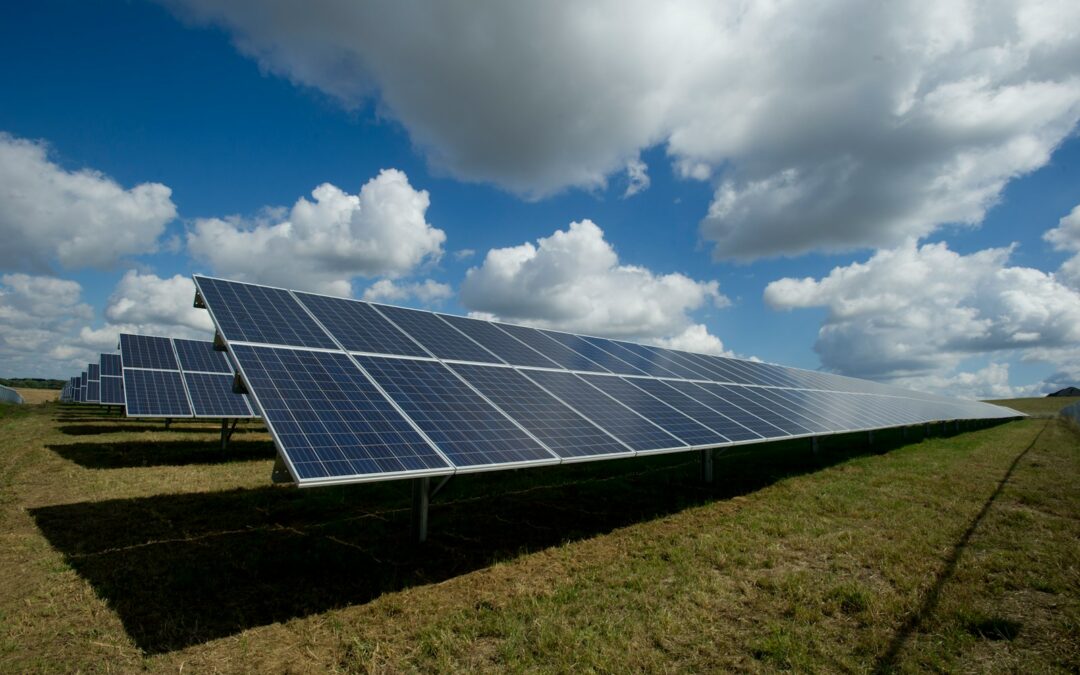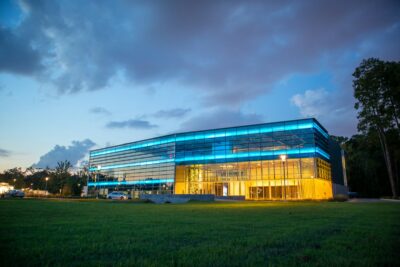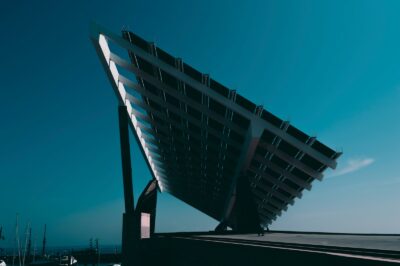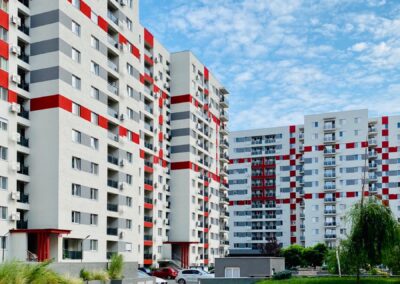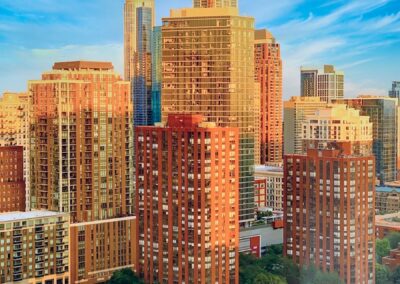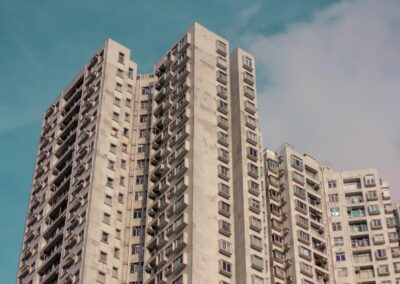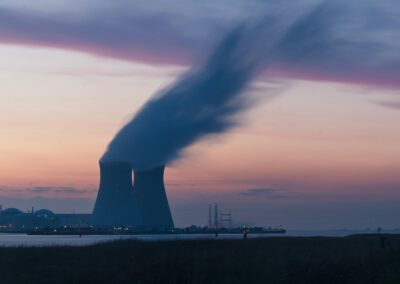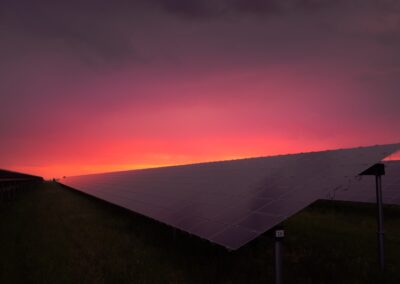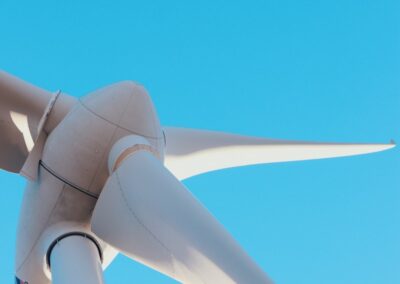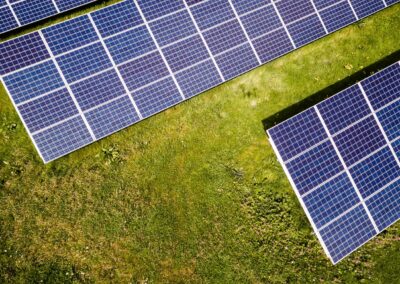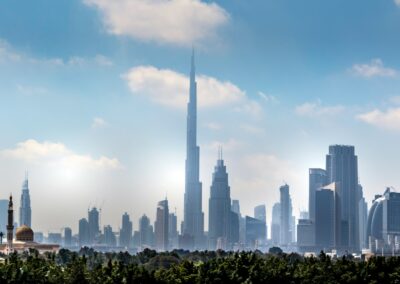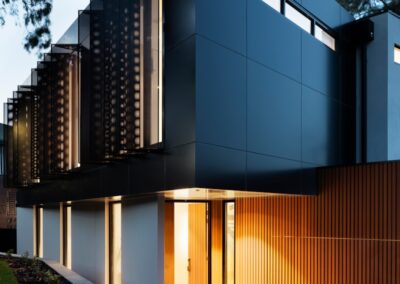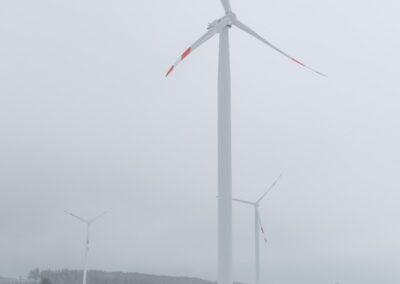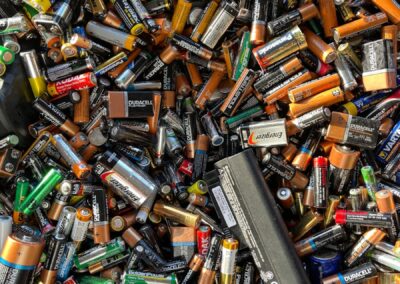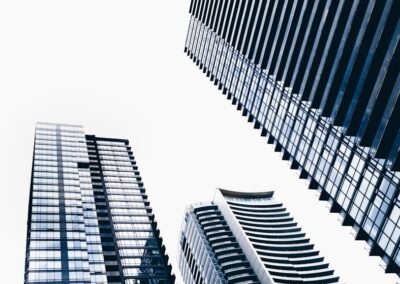Innovations in Energy Efficiency for High-Rise Buildings
Advanced Insulation Materials in High-Rise Buildings
The integration of energy-efficient high-rise buildings is transforming urban landscapes, particularly in regions like Saudi Arabia and the UAE. These areas, known for their rapid development and modern infrastructure, are leveraging cutting-edge insulation materials and technologies to minimize heat loss and reduce energy consumption. This approach is crucial in the hot climates of Riyadh and Dubai, where managing indoor temperatures efficiently can significantly lower energy costs and environmental impact.
In Saudi Arabia, the use of advanced insulation materials such as aerogel and vacuum-insulated panels (VIPs) is becoming more common in high-rise construction. Aerogel, known for its exceptional insulating properties, is lightweight and can reduce heat transfer effectively. VIPs offer excellent thermal resistance with a much thinner profile compared to traditional insulation materials, making them ideal for the space constraints of high-rise buildings. These materials help maintain a consistent indoor temperature, reducing the need for extensive air conditioning and thereby lowering energy consumption.
For business executives and entrepreneurs, investing in advanced insulation technologies is not only a sustainable choice but also a financially savvy one. The initial costs of high-performance insulation materials can be offset by long-term savings on energy bills and maintenance costs. Additionally, energy-efficient buildings often have higher property values and can attract environmentally conscious tenants and investors. Leaders in Saudi Arabia and the UAE must prioritize these innovations to enhance the sustainability and economic viability of their high-rise developments.
Technological Advancements in Energy Efficiency
Technological advancements are playing a crucial role in enhancing the energy efficiency of high-rise buildings. In regions like Saudi Arabia and the UAE, where high-rise buildings are a significant part of the urban fabric, integrating smart technologies can optimize energy use and improve overall building performance. These technologies include smart HVAC systems, energy management software, and IoT-based monitoring systems.
In Riyadh, smart HVAC systems are being implemented to optimize heating, ventilation, and air conditioning operations. These systems use sensors and AI algorithms to adjust temperature settings based on occupancy, weather conditions, and energy prices. This ensures that energy is used efficiently, reducing wastage and lowering operational costs. Additionally, energy management software provides real-time insights into energy consumption patterns, helping building managers identify areas for improvement and implement energy-saving measures.
In Dubai, IoT-based monitoring systems are being used to track and control various building functions, including lighting, security, and climate control. These systems can detect inefficiencies and automate responses to improve energy efficiency. For instance, IoT sensors can adjust lighting based on natural light levels, ensuring optimal illumination while minimizing energy use. By leveraging these technological advancements, high-rise buildings in Dubai are setting new standards for energy efficiency and sustainability.
Benefits and Challenges of Energy-Efficient High-Rise Buildings
Environmental and Economic Benefits
The environmental and economic benefits of energy-efficient high-rise buildings are substantial. In hot climates like those in Saudi Arabia and the UAE, where cooling demands are high, reducing energy consumption through advanced insulation and smart technologies can significantly lower greenhouse gas emissions. This contributes to the global effort to combat climate change and promotes sustainability in urban development.
Economically, energy-efficient buildings can lead to considerable cost savings over their lifecycle. Reduced energy consumption translates to lower utility bills, while advanced insulation materials can decrease maintenance costs by preventing heat-related wear and tear. In Riyadh and Dubai, buildings that meet high energy efficiency standards can also benefit from government incentives and subsidies aimed at promoting sustainable construction practices.
For business leaders, the financial advantages of energy-efficient high-rise buildings extend beyond direct cost savings. Energy-efficient buildings often have higher market values and can command premium rental rates. Additionally, businesses that occupy or invest in such buildings can enhance their corporate image by demonstrating a commitment to sustainability. Leaders in Saudi Arabia and the UAE must recognize the long-term economic benefits of energy-efficient buildings and incorporate these practices into their development strategies.
Challenges and Solutions in Implementing Energy-Efficient Technologies
While the benefits of energy-efficient high-rise buildings are clear, there are challenges associated with their implementation. High initial costs, technological complexity, and the need for skilled labor are some of the obstacles that developers and building managers face. However, with strategic planning and innovative solutions, these challenges can be effectively addressed.
In Riyadh and Dubai, high initial costs can be mitigated through public-private partnerships and government support. By collaborating with private sector companies and offering financial incentives, governments can encourage the adoption of energy-efficient technologies. Additionally, advancements in renewable energy sources, such as solar and wind power, can offset the energy consumption of high-rise buildings, making them more cost-effective in the long run.
The technological complexity of energy-efficient systems requires ongoing education and training. In Saudi Arabia and the UAE, universities and technical institutes are offering specialized courses in sustainable construction and energy management. By investing in the education and training of professionals, these regions can build a skilled workforce capable of designing, implementing, and maintaining advanced energy-efficient systems. This investment in human capital is crucial for the successful integration of energy-efficient technologies in high-rise buildings.
The Future of Energy-Efficient High-Rise Buildings
The future of energy-efficient high-rise buildings is promising, with continuous advancements in technology and growing awareness of the importance of sustainability. In regions like Saudi Arabia and the UAE, the focus on energy efficiency is set to transform urban development, creating cities that are not only modern and luxurious but also environmentally responsible.
In Riyadh and Dubai, the future will be shaped by ongoing research and innovation in building materials and energy management technologies. As new materials with superior insulating properties are developed, and as AI and IoT technologies become more sophisticated, the potential for energy savings will increase. These advancements will enable the construction of buildings that are even more efficient, comfortable, and sustainable.
For business executives and entrepreneurs, staying at the forefront of these developments is essential. By embracing the latest technologies and best practices in energy efficiency, businesses can position themselves as leaders in sustainable development. Leaders in Saudi Arabia and the UAE must champion the adoption of energy-efficient technologies, driving innovation and ensuring that their cities remain competitive and resilient in the face of future challenges.
Conclusion
Energy-efficient high-rise buildings, utilizing advanced insulation materials and smart technologies, offer a sustainable solution to the challenges of urban development. In regions like Saudi Arabia and the UAE, these innovations are transforming the construction and operation of high-rise buildings, leading to significant environmental and economic benefits. By prioritizing energy efficiency and sustainability, business leaders and entrepreneurs can drive the successful implementation of these technologies, contributing to the creation of modern, resilient, and sustainable urban environments.
—
#EnergyEfficientBuildings #HighRiseBuildings #InsulationMaterials #AdvancedTechnologies #AI #Blockchain #TheMetaverse #GenerativeAI #ModernTechnology #SaudiArabia #UAE #Riyadh #Dubai #BusinessSuccess #Leadership #ManagementSkills #ProjectManagement

